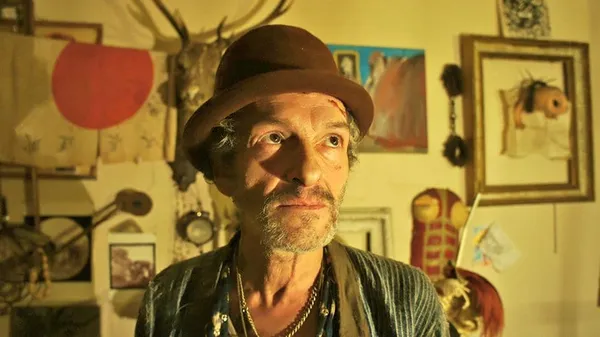Eye For Film >> Movies >> Iboga Nights (2013) Film Review
Iboga Nights
Reviewed by: Jennie Kermode

In 2004, heroin user David Graham Scott documented his use of Gabonese hallucinogen ibogaine to try to cure his addiction. When it was successful, his film became a massive underground hit, distributed around the world by desperate addicts to whom it offered a beacon of help. Scott himself, however, was unprepared for this phenomenon, and as he became aware of reports that the drug had killed people, he felt the weight of responsibility. In this film, he sets out to provide a more rounded picture of iboga, looking at other people's experiences with it and asking if the risks are worth it for people who have no other hope.
It's rare to see heroin addiction talked about by those who've been there (the only other recent example in cinema is the excellent Everybody's Child), so Scott's voice brings a welcome authenticity to the subject and gets at social and cultural issues that outsiders routinely miss. He doesn't always pick up on what will be unfamiliar to a wider audience, however. Some scenes do seem to be aimed at communicating the addict experience to outsiders but other things are taken for granted in a way that will leave many lost. The film will doubtless be useful to its primary constituency but may struggle to find traction elsewhere.

In the course of this uneven but bold journey, we visit a makeshift clinic where addicts are being helped through the treatment; the intentions are good but the lack of resources for dealing with serious problems is deeply worrying. One is reminded of the early AIDS clinics in New York where sufferers took experimental drugs, sometimes illegally, because there was no social or political will to give them proper support. The people at the this clinic have found themselves there for different reasons. One has been taking opiates on prescription for years since suffering an accident. She was given this addiction by a medical establishment that has done nothing to help her quit.
There are doctors trying to legitimise the use of iboga, and they are briefly mentioned here, but most of the focus is on the patients. Though the pacing is uneven and we spend too much time watching people doing nothing but worry, some strong individual stories come through across the length of the film. It's in the nature of the beast that some have abrupt, bleak endings; others, however, contain an element of joy not so easily anticipated. Perhaps most importantly, as far as outsiders are concerned, they emphasise that addicts are human beings with ambitions like anyone else, and that they generally don't want to be living life the way they are. Moments of humour as they reflect on their lives do a lot t energise the film.
Underlying all this is Scott's own story. Though he doesn't go into his personal issues much here, the very fact that he has put this film together and spent so much time around active users without picking up a needle again is perhaps the most impressive testimony to iboga's effectiveness. One cannot help but feel that in a proper medical setting, with health checks beforehand to rule out its use in those most at risk, it could be a very good option for many. Though Scott never argues this directly, he makes a good case for it.
Reviewed on: 08 Sep 2014
















